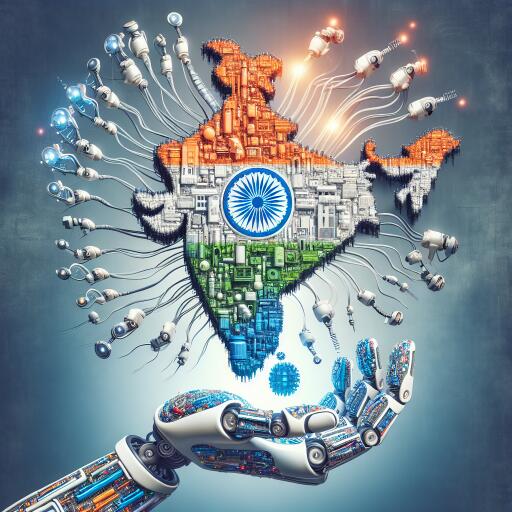India as a Global Hub for AI-Related Employment: Insights from Ola CEO Bhavish Aggarwal
Ola CEO Bhavish Aggarwal sees a bright future where India could stand out as a global center for employment in artificial intelligence (AI), capitalizing on its extensive pool of IT professionals to secure a significant place in the international arena.
In a compelling dialogue, Aggarwal shared his thoughts on how the Indian workforce, particularly its tens of millions of IT services professionals, could dramatically increase their productivity through AI, potentially bringing a tenfold increase in jobs to India. This ambitious vision challenges the conventional fear that AI might displace jobs more than it creates them.
Aggarwal provided a nuanced view on the impact of AI on employment, stating, “To quantify is difficult, but I would say AI will create new jobs, AI will take away jobs also.” He highlighted that while some positions may become obsolete, leading to job displacement, new opportunities will inevitably arise, particularly in AI-driven sectors.
The productivity gains promised by AI are expected not only to reshape the job landscape but also to boost economic productivity by automating routine tasks, thereby freeing up individuals to focus on more complex and innovative work. “Some jobs will go, and productivity will be enhanced… AI is going to create a bunch of new kind of jobs in the future,” Aggarwal explained. He emphasized the importance for India to become a prime destination for these futuristic AI jobs, catering to global demands.
For India to realize this vision, Aggarwal outlined a comprehensive strategy centered on open data access and the development of a robust, supportive infrastructure. By becoming a net exporter of AI technology and intelligence, India must leverage public domain data, build large open-source intelligence resources, and establish a local supply chain for compute infrastructure.
Amidst the burgeoning hype around AI, Aggarwal acknowledged the technology’s potential to profoundly disrupt various sectors. He urged a collective strategic approach from all societal facets, including business leaders, media, bureaucrats, politicians, and government officials, to navigate the risks and opportunities presented by AI.
Aggarwal projected that the immediate impact of AI would be more on white-collar jobs than on blue-collar positions, due to the technology’s current manifestation in computational rather than physical robotics. This distinction underscores a shift toward AI’s impact on desk-based and service-oriented jobs in the near term.
In conclusion, while recognizing the inherent risks of AI, Aggarwal remains optimistic about its potential to significantly enhance global economic productivity. India’s journey toward becoming a global hub for AI-related employment hinges on embracing and leading in AI innovation, offering a promising path toward reshaping the global employment landscape.
